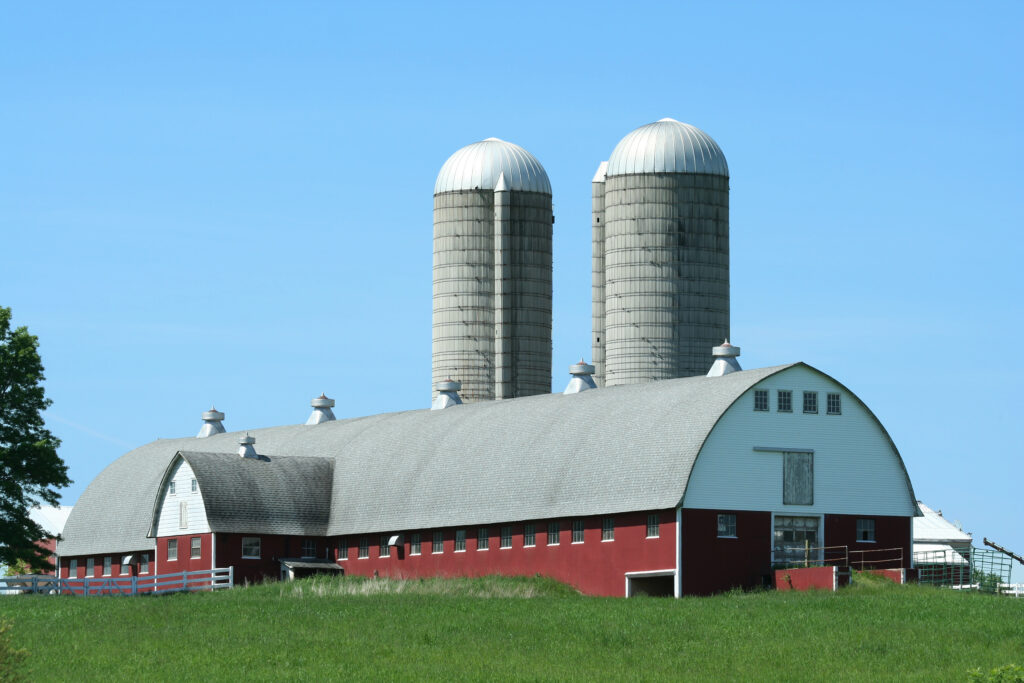Cleanliness and proper sanitation are two of the biggest challenges facing the agriculture and food processing industries. Companies need to make sure that both agriculture and food are processed in completely sterile environments to reduce and eliminate the risk of spreading food-borne diseases. On top of that, agricultural facility maintenance and operational costs can be extremely high.
There is a solution. Using food-grade coatings, such as polyurea, in the agriculture industry can help to significantly cut down these costs while strengthening safe sanitation practices.

What Is Polyurea?
Polyurea is an extremely versatile protective coating that can be used for a number of industrial and residential projects. It can be used to protect a variety of materials from corrosion, rust, water damage, and other types of damages.
Composed of an aliphatic or aromatic isocyanate component that’s combined with an amine blend, polyurea is applied by sprays. The liquid gels and is dry to the touch in a matter of seconds, creating a smooth chemical-resistant, scratch-resistant, and waterproof surface.
Benefits of Using Polyurea in the Agriculture Industry
Polyurea is an excellent cost-effective solution to protect agricultural equipment as well as food processing facilities and trucks from contamination. Here are some of the advantages of using polyurea protective coatings in the agriculture industry.
It’s Extremely Durable
Polyurea is one of the most durable, flexible, and resilient protective coatings on the market. Due to its polymer attributes, polyurea is also highly waterproof, abrasion-resistant, and chemical-resistant. It will not chip or crack from high power pressure washing techniques or exposure to strong sanitization chemicals. Other coatings will chip or crack after consistent exposure to these cleaning techniques which can allow microbes to get into the cracks and multiply.
With a polyurea coating you avoid this. Polyurea’s strong anti-bacterial properties ensure that all health and safety codes in food processing plants can easily be met.
It Insulates against Hot and Cold Temperature Fluctuations
Aside from adhering to stringent sanitation regulations, another major challenge for the food and beverage industry is storing products at the appropriate temperature at all times. Certain products needs to be stored at specific temperatures to maintain freshness, prevent them from spoiling in transition, and extend their shelf life.
Some products like meat require frozen temperatures, beverages require cold temperatures, while other products like some tropical fruit should be stored at moderate to warm temperatures. Polyurea can withstand a wide range of temperatures and is not susceptible to thermal shock. Polyurea can protect food processing facilities, equipment, tanks, and transportation vehicles regardless of the temperature or how it fluctuates.
It’s Environmentally Friendly
Pure polyureas are 100% solids with no solvents or VOCs. They are environmentally friendly coatings with no smell our outgassing during installation.
Quick Return to Service
Polyurea is applied by certified installers with a special plural component, high pressure, and temperature system via spray gun. As it gels within six seconds, it can be applied with relatively unlimited application thickness in one pass. You are able to return the area to service within 24 hours or less.
Different Applications for Polyurea in Food-Grade Coating
Polyurea protective coatings can help save the food industry a lot of time and money, and they require very minimal maintenance and effort in return. Here are some of the food industry applications for polyurea coatings.
Floors
Floor protection is one of the most common applications for polyurea protective coatings. That’s because polyurea provides a safe, clean, waterproof, abrasion resistant and chemically resistant surface to walk on. It also cures within a matter of seconds, which prevents long shutdowns and ensures operations can resume almost immediately.
Freezers
Polyurea protective coatings prevent cold air loss that can lead to food spoilage and increase energy consumption or operating costs for food processing plants. They can also withstand extremely cold temperatures without cracking.
Food Processing Equipment
It’s not just the food processing and storage infrastructure that needs protection from contamination—equipment is also a major risk. Food-grade polyurea protective coatings can be used to prevent cross-contamination amongst equipment that’s used to handle more than one type of product as it is easy to clean. These coatings will also protect equipment like feed troughs on farms from wear and tear.
Silos
Silos are structures that are used for storing bulk materials. In the agriculture industry, these can include grain varieties, fermented animal feed, coal products, cement, woodchips, sawdust, and other items. The products stored in these facilities are known as silage. To prevent these products from spoiling or being exposed to potential contaminants, the interior and exterior of silos should be sprayed with a strong polyurea protective coating.
How Polyurea Can Be Used in Food and Beverage Tanks
Tank Lining
When used for interior tank linings, polyurea provides a completely monolithic and seamless finish that acts as a protective barrier between potential contaminants and food products. This is especially important during the food transportation and delivery process when the risk of contamination is at an all-time high.
Contact IMC Distributors for Polyurea Coatings for Your Farm or Food Processing Facility
IMC Distributors is one of the leading providers of high-quality polyurea protective coatings. We’re proudly partnered with ISOMAT Canada to distribute their line of highly effective polyurea protective coatings that are proven to work on a number of applications and settings. Contact us today to learn more about our products and see how they can help improve the safety standards and efficiency of your food processing operations.
 Karli Logan is the Owner and President of IMC Distributors which is the exclusive partner of Nukote Coating Systems in Canada. With a B.Sc and M.Sc, as well as a demonstrated history of working across a number of industries, she has a passion to drive significant gains and benefits for IMC’s clients.
Karli Logan is the Owner and President of IMC Distributors which is the exclusive partner of Nukote Coating Systems in Canada. With a B.Sc and M.Sc, as well as a demonstrated history of working across a number of industries, she has a passion to drive significant gains and benefits for IMC’s clients.